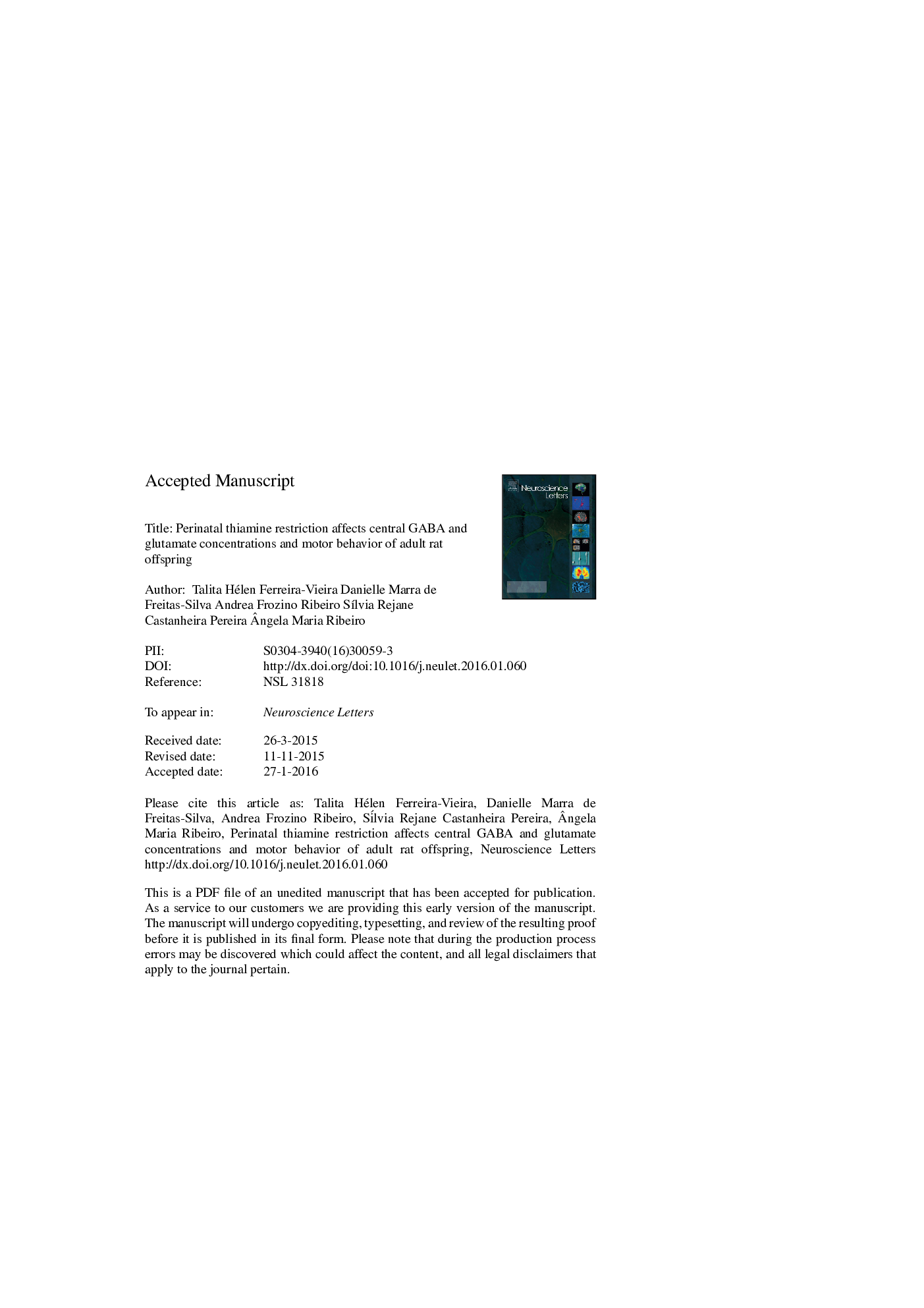| Article ID | Journal | Published Year | Pages | File Type |
|---|---|---|---|---|
| 6279961 | Neuroscience Letters | 2016 | 17 Pages |
Abstract
The purposes of the present study were to investigate the effects of perinatal thiamine deficiency, from the 11th day of gestation until the 5th day of lactation, on motor behavior and neurochemical parameters in adult rat offspring, using 3-month-old, adult, male Wistar rats. All rats were submitted to motor tests, using the rotarod and paw print tasks. After behavioral tests, their thalamus, cerebellum and spinal cord were dissected for glutamate and GABA quantifications by high performance liquid chromatography. The thiamine-restricted mothers (RM) group showed a significant reduction of time spent on the rotarod at 25Â rpm and an increase in hind-base width. A significant decrease of glutamate concentration in the cerebellum and an increase of GABA concentrations in the thalamus were also observed. For the offspring from control mothers (CM) group there were significant correlations between thalamic GABA concentrations and both rotarod performance and average hind-base width. In addition, for rats from the RM group a significant correlation between stride length and cerebellar GABA concentration was found. These results show that the deficiency of thiamine during an early developmental period affects certain motor behavior parameters and GABA and glutamate levels in specific brain areas. Hence, a thiamine deficiency episode during an early developmental period can induce motor impairments and excitatory and inhibitory neurotransmitter changes that are persistent and detectable in later periods of life.
Keywords
Related Topics
Life Sciences
Neuroscience
Neuroscience (General)
Authors
Talita Hélen Ferreira-Vieira, Danielle Marra de Freitas-Silva, Andrea Frozino Ribeiro, SÃlvia Rejane Castanheira Pereira, Ãngela Maria Ribeiro,
